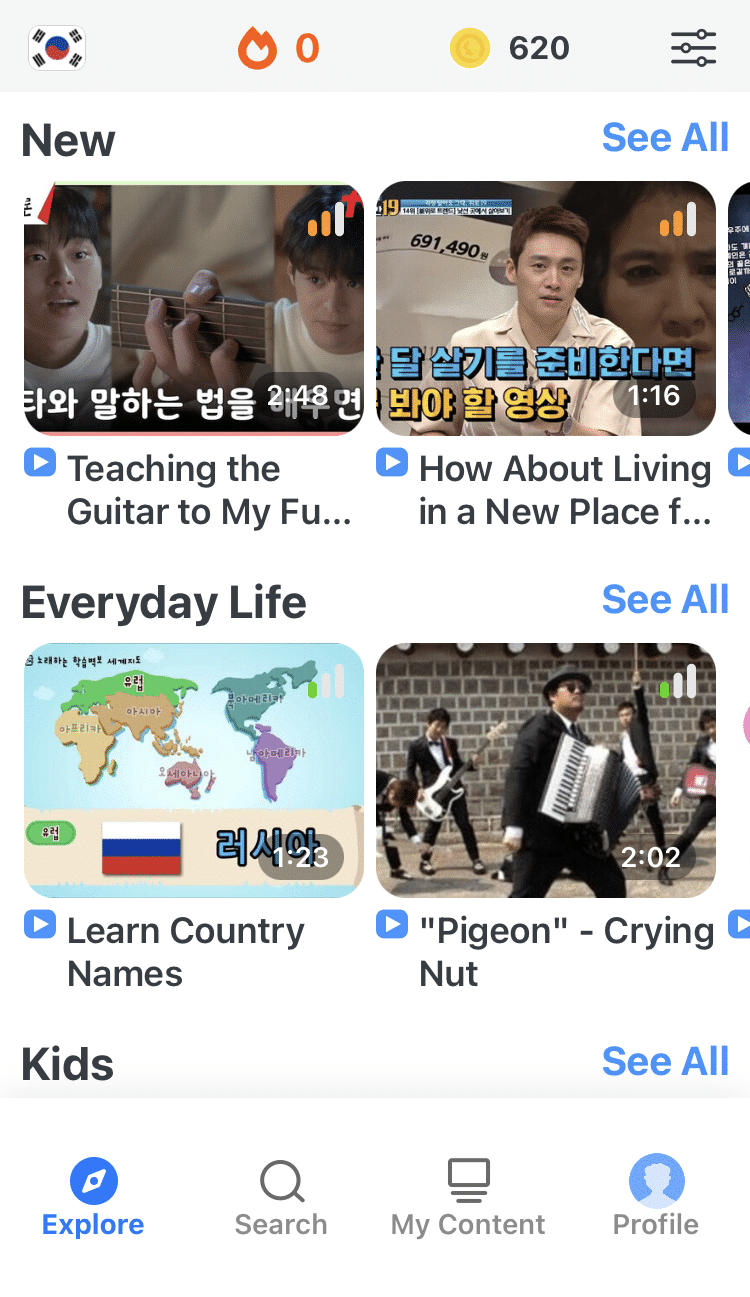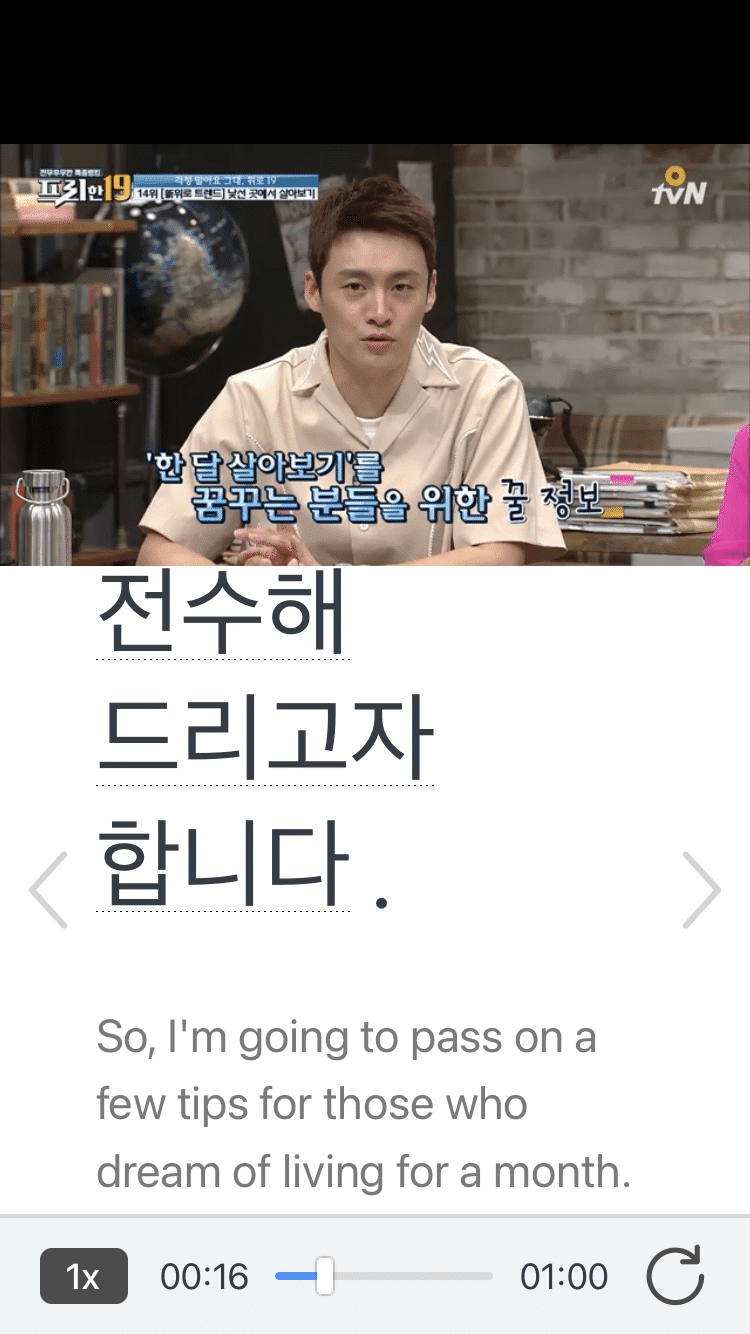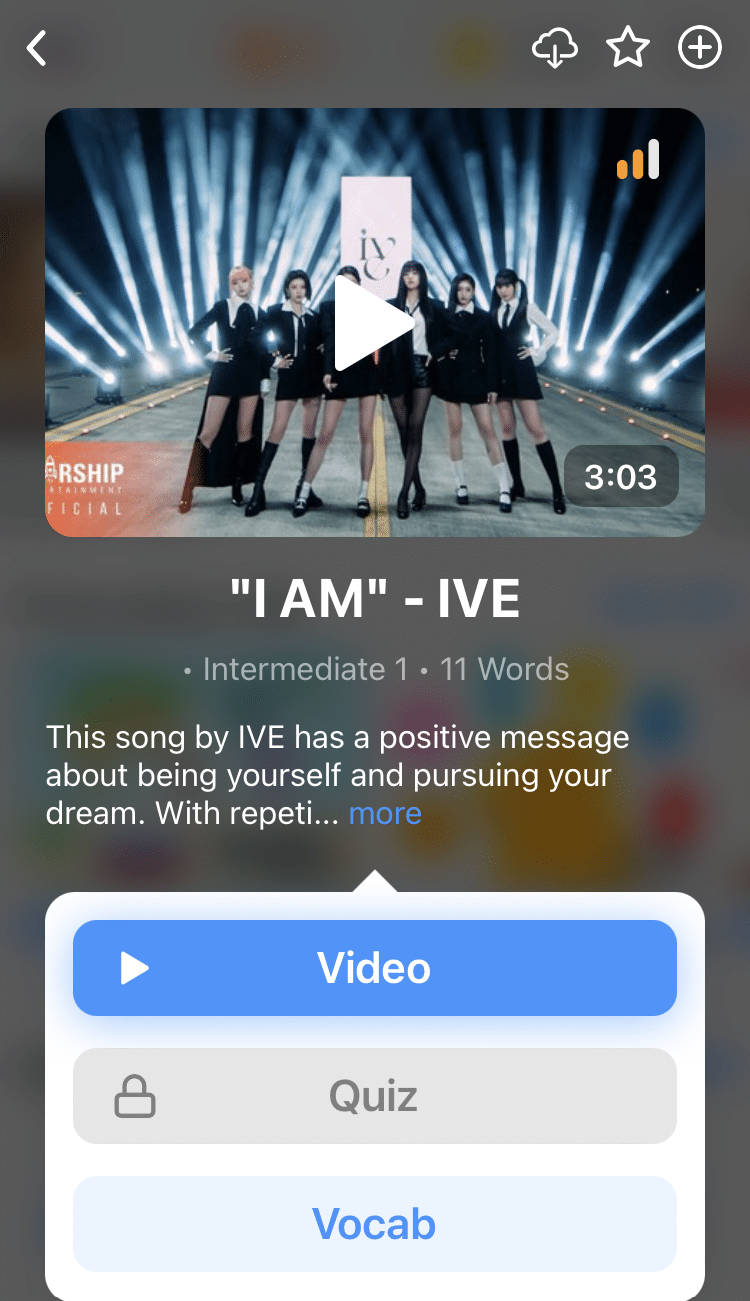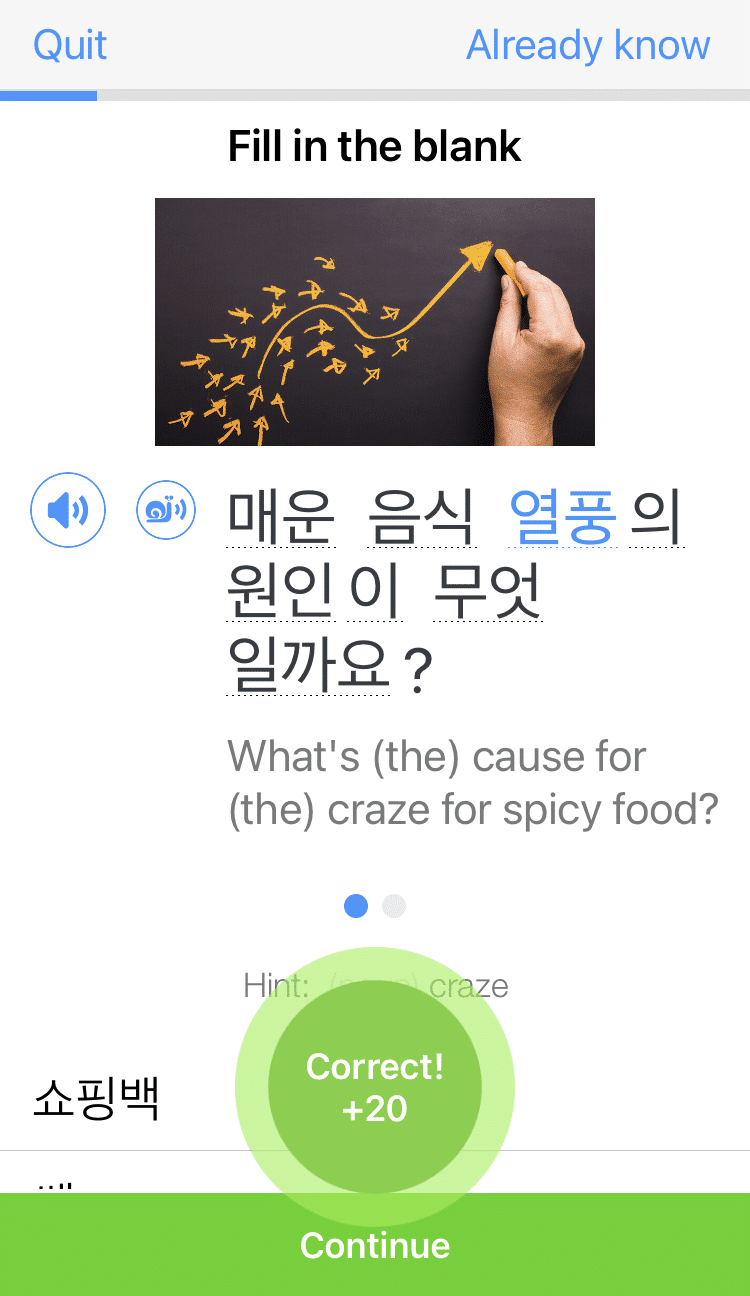
12 Ways to Say “I Love You” in Korean [with Audio]
Love is a very powerful thing, so it makes sense that you want to know how to express it in Korean.
This post will show you exactly how to tell someone you love them—just like a native Korean speaker!
For example, you might already know about 사랑해 or sarang-hae (“I love you”), but did you know there are versions of it that are more polite or formal?
In this guide, we’ll teach you how to say “I love you” in different situations, from confessing your love for the first time to tying the knot.
Let’s take a look!
Contents
- How to Say “I Love You” in Korean
- More Ways to Say “I Love You” in Korean
- 4. 나는 너를 친구 이상으로 생각해 — I think of you as more than a friend
- 5. 나는 너에게 반했어 — I’ve got a crush on you
- 6. 나랑 사귈래? — Will you be my boyfriend / girlfriend?
- 7. 같이 있고 싶어 — I want to be with you
- 8. 난 네 거야 — I’m yours
- 9. 나도 너를 사랑해 — I love you too
- 10. 좋아해요 — I like you
- 11. 당신은 나에게 무척 소중해요 — You mean so much to me
- 12. 저랑 결혼해 줄래요? — Will you marry me?
- Romantic Words and Phrases in Korean
- Terms of Endearment in Korean
- The Korean Gesture for Love
- Holidays Celebrating Love in Korea
- And One More Thing...
Download: This blog post is available as a convenient and portable PDF that you can take anywhere. Click here to get a copy. (Download)
How to Say “I Love You” in Korean

The word for “love” in Korean is 사랑 (sa-rang).
Before we get into the nitty-gritty of things, we need to remember that we have Korean speech levels that reflect differences in age, relationship, rank or social status.
This affects the way we say “I love you.” The root sa-rang tacks on different endings, depending on the level of formality conveyed by the situation:
1. 사랑해 (Informal)
Romanization: Sarang-hae
Of the three ways to say “I love you,” this is the most informal. You use it with girlfriends/boyfriends or people you’re close to.
Sarang-hae assumes familiarity and closeness and is appropriate for people you have a standing relationship with.
Here are a couple of example sentences that use this phrase:
자기, 사랑해. (Jagi, sarang-hae.)
Honey, I love you.
우리 싸우지 말자. 당신, 사랑해. (Oori ssauji malja. Dangshin, sarang-hae.)
Let’s not fight. Honey, I love you.
2. 사랑해요 (Polite)
Romanization: Sarang-haeyo
Sarang-haeyo is more polite than sarang-hae. Some couples can opt to use sarang-haeyo if they want to be extra polite with each other, but many just use the casual sarang-hae.
Sarang-haeyo is also used by some people to say “I love you” to their parents. This depends on the relationship and the family.
Here are a couple of examples that use this phrase:
사랑해요… 나랑 사귈래요? (Sarang-haeyo… Narang saguillaeyo?)
I love you… Will you go out with me?
엄마, 사랑해요. (Umma, sarang-haeyo.)
Mom, I love you.
3. 사랑합니다 (Formal)
Romanization: Sarang-hamnida
This is the most formal way to say “I love you.” You can use it when you’re talking to a group of people, like a full auditorium or when you’re giving a presentation or speech.
Sarang-hamnida can also be used with someone you don’t know really well or someone who’s older than you. Another situation is if the recipient is higher in perceived social status (even if he or she might be your age).
You might hear one of the members of the popular band BTS yell the following to their fans in the Philippines:
사랑합니다, 마닐라! (Sarang-hamnida, Manila!)
I love you, Manila!
Because Sarang-hamnida is quite formal, it’s not often heard or used in everyday conversations. The term does appear in poems and songs, however.
One example of this is in Tim Hwang’s 2003 hit ballad “Saranghamnida.”
More Ways to Say “I Love You” in Korean
“I love you” may not always be the perfect thing to say.
Just as indicated in the video below, “I love you” is usually reserved for those who are truly committed or those who are really important to you—but there are plenty more ways of expressing love in Korean!
Below are some of the other phrases that you can use to tell a native speaker you are interested in them. To learn all the different situations you could use them in, watch and listen to how native speakers actually use the sentences themselves—the language learning program FluentU is one place you can do this.
FluentU takes authentic videos—like music videos, movie trailers, news and inspiring talks—and turns them into personalized language learning lessons. You can try FluentU for free for 2 weeks. Check out the website or download the iOS app or Android app. P.S. Click here to take advantage of our current sale! (Expires at the end of this month.)
So, let’s have a look at those sentences!
4. 나는 너를 친구 이상으로 생각해 — I think of you as more than a friend
Romanization: Naneun neoreul chingu isangeuro saengakhae
Formality: Informal
Use this phrase if you want to let someone know you have feelings for them. Maybe you’re not quite sure yet what you’re feeling, but try saying this and finding out together!
5. 나는 너에게 반했어 — I’ve got a crush on you
Romanization: Naneun neoege banhaeseo
Formality: Informal
This one literally means, “I fell for you” or “I’ve fallen for you.” When you feel a bit intoxicated by someone and their presence, this would be a fitting one.
6. 나랑 사귈래? — Will you be my boyfriend / girlfriend?
Romanization: Narang sagwillae?
Formality level: Informal
As you might have noticed by this point, Korean is a high-context language. 사귀다 literally means “to make friends with,” but in this context it means “to go out with.”
7. 같이 있고 싶어 — I want to be with you
Romanization: Gachi itgo sipeo
Formality: Informal
To continue with the high-context theme, as you may have noticed, many Korean phrases remove the subject altogether—including this one. Use this one when you want to be close to your honey.
8. 난 네 거야 — I’m yours
Romanization: Nan ni-kkeoya
Formality: Informal
This is a cutesy thing to say when you’re going out with someone. Note that the spelling may be 네 (yours), but it’s more commonly pronounced as 니 so that it’s easier to distinguish from the word 내 (mine).
9. 나도 너를 사랑해 — I love you too
Romanization: Nado neoreul sarang-hae.
Formality: Informal
When someone says “I love you” to you, you can go ahead and say this right back. Since it’s informal, you can use it with anyone you feel really close to, including your family.
10. 좋아해요 — I like you
Romanization: Jowa-haeyo
Formality: Polite
This is a general way of saying you like someone, but you’re not super close yet or they’re older than you. You can see that with the slightly higher level of formality.
If you want to be fluent in Korean flirting, this post with 34 flirting phrases in Korean can help you get closer to it:
How to Flirt in Korean | FluentU Korean Blog
Flirting in Korean is easy with these 34 phrases that will help you talk to someone you like. Check out this ultimate guide to Korean flirting and dating culture and learn…
11. 당신은 나에게 무척 소중해요 — You mean so much to me
Romanization: Dangsineun na-ege mucheok sojung-haeyo
Formality: Polite
When sarang-haeyo gets old, you can pretty much say the same thing with this phrase. The word 소중하다 means “to be precious,” so the sentence literally means, “You are very precious to me.”
12. 저랑 결혼해 줄래요? — Will you marry me?
Romanization: Juwa gyulhonhae jullaeyo?
Formality: Polite
If you’ve remained on the polite formality level with your sweetheart and want to ask them to marry you, this is the one to use! To say it more informally, you can say 나랑 결혼해 줄래?
Romantic Words and Phrases in Korean
| Korean Vocabulary | English | Example Sentence |
|---|---|---|
| 나랑 사귈래? | Will you go out with me? | 한 번도 이런 감정을 느껴본 적이 없어. 그래서, 나랑 사귈래? (I've never felt this way before. So, will you go out with me?) |
| 데이트 | Date (noun) | 우리 이번 주말에 데이트하자. (Let's go on a date this weekend.) |
| 설렘 | Fluttery excitement | 그와 함께 있으면 항상 설렘이 느껴져요. (Whenever I'm with him, I always feel butterflies.) |
| 키스 | Kiss | 우리의 첫 키스를 기억하니? (Do you remember our first kiss?) |
| 당신과 함께 하는 것이 좋아요 | I like being with you | 산책하는 것도, 영화 보는 것도 당신과 함께 하는 것이 좋아요. (I like being with you, from taking walks to watching movies.) |
| 너무 예뻐요 | You're so beautiful | 그냥 웃는 것만으로도 너무 예뻐요 / 잘생겼어요. (You're so beautiful / handsome, even when you just smile.) |
| 너무 잘생겼어요 | You're so handsome | |
| 항상 당신을 생각해요 | I always think about you | 내가 무엇을 하든, 어디에 있든 항상 당신을 생각해요. (No matter what I do or where I am, I always think about you.) |
| 너의 모든 것이 좋아 | I like everything about you | 너의 성격, 너의 스타일, 너의 모든 것이 좋아. (Your personality, your style, I like everything about you.) |
| 사랑에 빠졌어요 | I've fallen in love with you | 처음 본 순간부터 사랑에 빠졌어요. (From the moment I first saw you, I fell in love with you.) |
| 나는 당신을 위해 있어요 | I'm here for you | 힘들 때나, 기쁠 때나, 언제나 나는 당신을 위해 있어요. (In hard times, happy times, always, I'm here for you.) |
| 내 사람이에요 | You're my person | 당신이 곁에 있을 때 가장 행복해요. 왜냐하면 당신은 내 사람이니까요. (I'm happiest when you're by my side, because you're my person.) |
| 보고 싶어 | I miss you | 널 생각하면 늘 보고 싶어. (I miss you all the time, thinking of you.) |
| 당신이 내 인생의 의미예요 | You mean everything to me | 당신이 없는 내 삶은 상상조차 할 수 없어요. 당신이 내 인생의 의미예요. (I can't even imagine my life without you. You mean everything to me.) |
| 내게 네가 너무 소중해 | You are very precious to me | 너는 내 삶에서 필수적인 역할을 하는 사람이야. 내게 네가 너무 소중해. (You play an essential role in my life, you are very precious to me.) |
| 사랑스럽다 | Lovely | 너의 눈빛이 정말 사랑스럽다. (Your eyes are really lovely.) |
| 남자 친구 | Boyfriend | 나는 네가 나의 남자 친구 / 여자 친구여서 감사해. (I'm grateful that you're my boyfriend / girlfriend.) |
| 여자 친구 | Girlfriend | |
| 연애하다 | To be in a relationship or to date someone | 우리가 처음 연애를 시작한 날을 기억해? (Do you remember the day we first started dating?) |
| 너의 미소를 좋아해 | I like your smile | 너의 미소를 좋아해. 그것은 내 하루를 밝게 만들어. (I like your smile, It brightens up my day.) |
| 당신이 내 곁에 있어서 행복해요 | I'm happy that you're by my side | 당신이 있어서 정말 다행이에요. 당신이 내 곁에 있어서 행복해요. (I'm really lucky to have you. I'm happy that you're by my side.) |
Terms of Endearment in Korean

So now that you’re together, what should you call your sweetheart?
There are several words that you can use when talking to others about the person you’re dating, but these are the main words that you would use when talking to your lover or partner directly.
- 자기 — Honey (for all types of romantic relationships)
- 여보 — Darling (for married couples)
- 오빠 — Older brother (for females) (platonic or romantic)
- 언니 — Older sister (for females) (platonic or romantic)
- 형 — Older brother (for males) (platonic or romantic)
- 누나 — Older sister (for males) (platonic or romantic)
When you’re going out with someone younger than you, you can also just use their name, if you prefer. Married couples will often not call each other by name!
For more terms of endearment, check out our full post on it below.
40 Korean Terms of Endearment for Your Loved Ones [with Audio] | FluentU Korean Blog
These Korean terms of endearment will impress your Korean loved ones—whether they’re your sweetheart, friend, child or family member. They’ll leave them feeling loved…
The Korean Gesture for Love

This gesture has become as iconic as the familiar peace sign and is used by idols and regular people alike. To make it, all you have to do is cross your thumb and forefinger to create the heart shape.
It’s said to have originated with the celebrity Kim Hye-soo in 2010, although it’s gained popularity internationally in more recent years.
It has now spread all over the world and you can use it for your lover, friends, family or pretty much anyone you care about.
Holidays Celebrating Love in Korea
In Korea, there are several holidays beyond just Valentine’s Day! Have a look at the different days that are celebrated by either couples and singles, depending on your relationship status.
- Valentine’s Day: Did you know that in Korea, on Valentine’s Day, February 14th, it’s the women who give men chocolates? Yup, while their Western counterparts get treated to an expensive dinner and gifts, Korean women buy their men chocolate on Valentine’s Day.
- White Day: If women having to buy their men chocolates on Valentine’s Day sounds unfair, don’t worry! Just one month later, on March 14, Korea celebrates White Day. The men who received chocolates a month before are socially obligated to give their partners gifts, chocolate and sweets. The rule is that the value of the chocolates a guy received on Valentine’s Day must be returned three-fold.
- Black Day: Korea also celebrates a day called Black Day on April 14. Black Day is for singles, those who didn’t get to participate in the festivities in the previous two months. Single folks go out with their other single friends, to a Chinese-Korean restaurant where they order Jajangmyeon, a savory noodle dish covered in black sauce. It can be a day either to wallow or celebrate their freedom!
You now know different ways to say “I love you” in Korean.
You also know a whole bunch of other romantic expressions you can use to show your emotions, so start using them!
Download: This blog post is available as a convenient and portable PDF that you can take anywhere. Click here to get a copy. (Download)
If you enjoyed this post, you're already halfway to having the time of your life learning Korean with FluentU!
FluentU makes it possible to learn with K-pop videos, funny commercials, entertaining web series and more. Just a quick look will give you an idea of the variety of FluentU videos on offer:
FluentU really takes the grunt work out of learning languages, leaving you with nothing but engaging, effective and efficient learning. It's already hand-picked the best videos for you (which are organized by level and topic), so all you have to do is simply choose any video that strikes your fancy to get started.
Each word in the interactive captions comes with a definition, audio, image, example sentences and more.
Access a complete interactive transcript of every video under the Dialogue tab, and easily review words and phrases from the video under Vocab.
You can use FluentU’s unique Quiz Mode to learn the vocabulary and phrases from the video through fun questions.
FluentU keeps track of what you're learning, and tells you exactly when it's time for review, giving you a 100% personalized experience.
Review sessions use video context to help embed the words in your memory.
Start using the FluentU website on your computer or tablet or, better yet, download the FluentU app from the iTunes or Google Play store. Click here to take advantage of our current sale! (Expires at the end of this month.)
And One More Thing...







